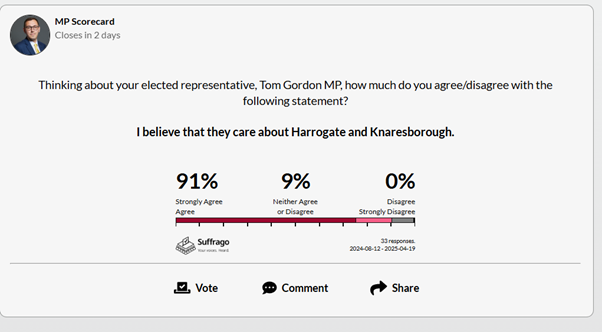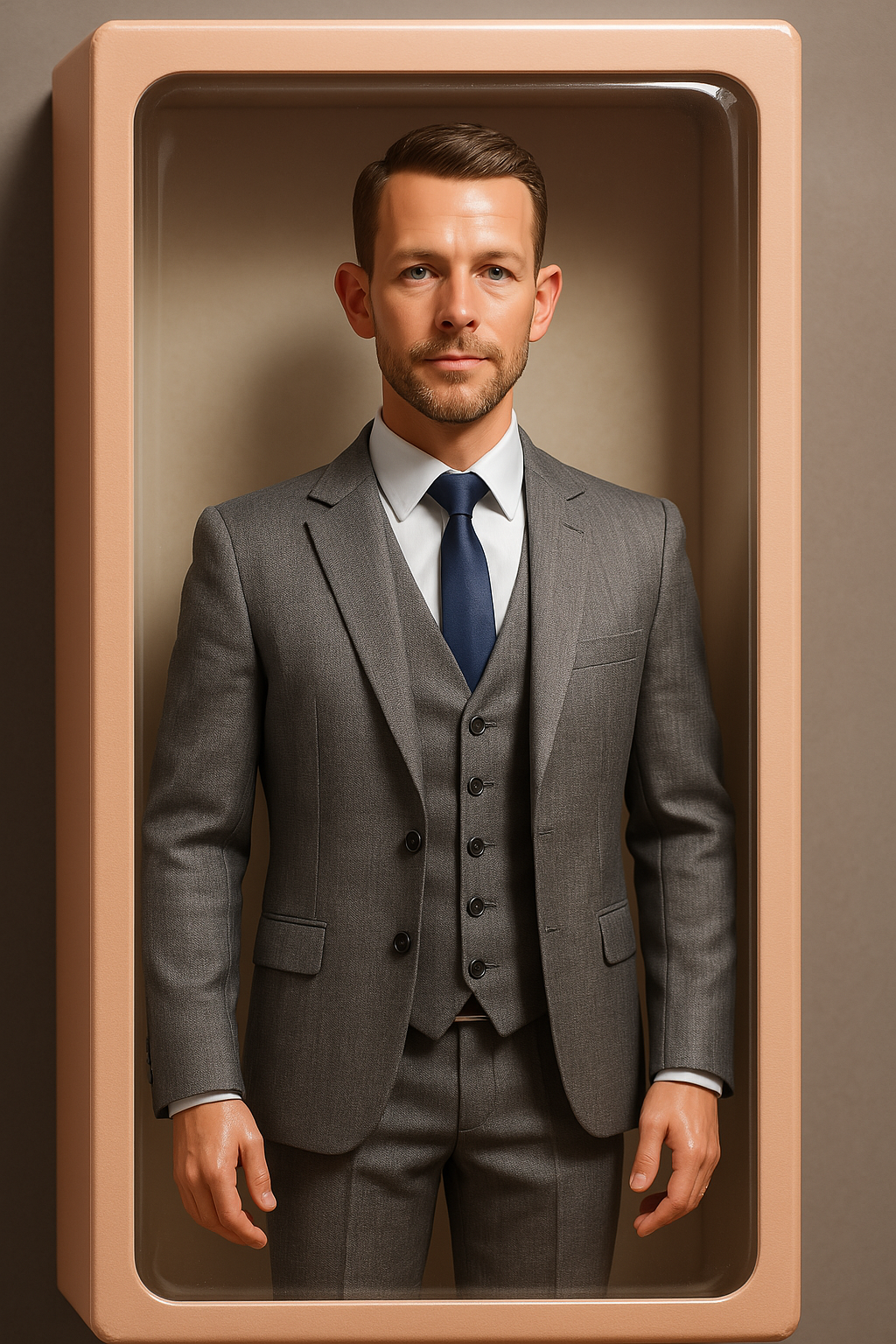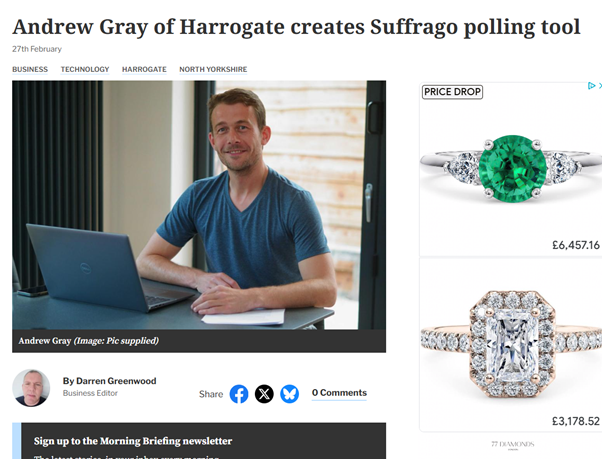My experience of 44 years of life is that, for circa 80 per cent of people, trying to be the best parent is their primary purpose – but a purpose which we often realise too late. And many leave it too late to have children.
Only in the last five years has it dawned upon me that this is my main purpose; everything else is secondary. Standing in an election, using AI, was primarily for my children, as is this blog, because I want my children to see what is possible, and I want to leave a written record as to why I did it.
Many of my friends and family choose not to have children and I respect that. For people who cannot have children, I cannot imagine your anguish.
Until recently, my favourite wedding photograph – other than ones with my wife in them – was the one of me with eight male friends from law school – four on one side and four on the other. At that time, we were all in our late 20s, with the world at our feet. The photographer must have said something funny as he’s captured us all laughing, smartly dressed, cool.
But over the years this photograph has begun to haunt me, because only a few of us have had children. (Of course, there are many reasons for this, and no criticism is levelled at anyone. I support their life choices; and I have unwavering sympathy for those who cannot, for whatever reason, have children). Simply put, it is accurate to write that we – in the photograph, and British society more generally – are not replacing ourselves.
I believe the reason for this lack of fatherhood focus amongst my peers lies in our societal narratives. In my conversations with male friends before hitting our 30s, I don’t recall any expressing a desire to be a father. It seems as though this near-universal aspiration was obscured from our collective consciousness.
I suppose the closest thing we had to a discussion about procreation was the “wear a condom” lesson at school, sidestepping the profound significance of parenthood. Should extraterrestrial observers analyse our societal blueprint, they might find it curious—perhaps even illogical—that despite parenthood being a primary life role for many, the prevailing societal infrastructure appears more intent on manufacturing proficient workers than nurturing prospective parents. Hence why my academies are offering a mentoring service in addition to tutoring.
Echoing Marx’s piercing insight that, ‘The ruling ideas of each age have ever been the ideas of its ruling class,‘ our educational system reveals a profound truth: society is sculpted to serve economic structures, rather than to foster the nurturing of life’s most fundamental roles.
For my cohort, grades, university and career dominated all our thoughts until we learned – often too late – that we’d have missed, for most people, the purpose of our existence. For me, this is the quintessential definition of a sick and dying country: a people who do not want to survive in the long-term. And it isn’t too late for Brits to salvage this situation, and many countries – thankfully – do things differently.
My go-to philosopher is Nietzsche. He encouraged us to carefully note who we envy. I can share with you who this is for me: anyone with more children than I have; and, any father who is better at this role than I am.
In the last week, I met a father who is evidently a far better dad than I am. So, I told him so.
My homework: to be a better dad.
(If you, or someone you know, needs guidance, I’m here to assist as a business advisor, or as a non-executive director, or more generally as a mentor. Extreme candour guaranteed!)










